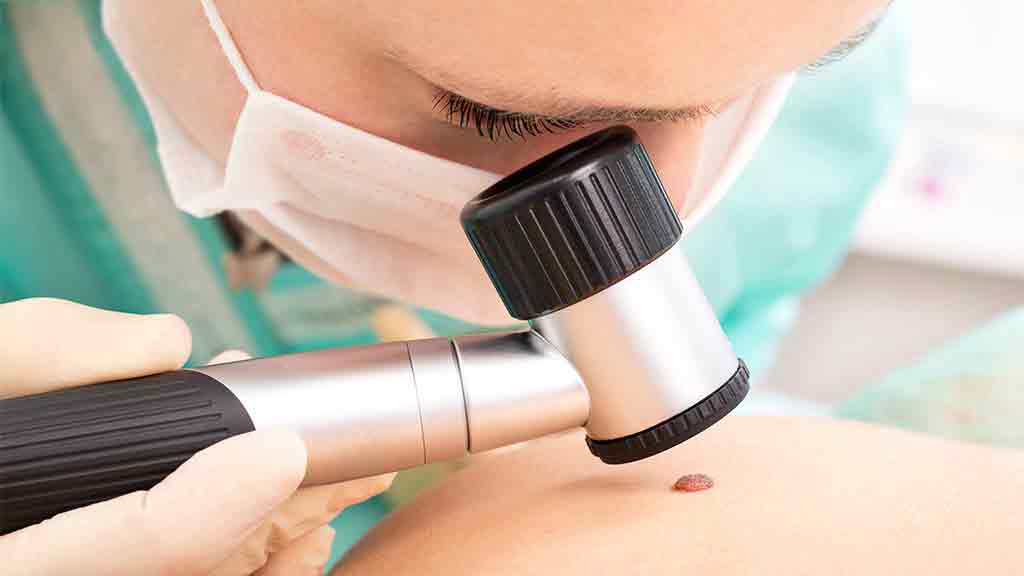Skin cancer is a serious health concern that affects millions of people worldwide. Early detection and prevention play a pivotal role in reducing its incidence and promoting optimal skin health. In this comprehensive guide, we delve into the importance of skin cancer checks, the effectiveness of mole mapping technology, and the available treatments for skin cancer. Empowering yourself with knowledge about skin cancer is the first step towards safeguarding your skin and overall well-being.
Skin Cancer Checks: Your First Line of Defense
Regular skin cancer checks are vital in identifying any suspicious moles or lesions that may be indicative of skin cancer. These checks are non-invasive and performed by qualified dermatologists or skin cancer specialists. During a skin check, your entire body is examined to detect any changes or abnormalities in your skin. Early detection of skin cancer significantly improves the chances of successful treatment and recovery.
Mole Mapping: Harnessing Advanced Technology for Accurate Assessment
Mole mapping is an advanced technology that aids in the accurate assessment of moles and their potential risks. This non-invasive procedure involves capturing high-resolution images of your skin, allowing dermatologists to closely monitor the size, shape, and color of your moles. With mole mapping, any changes in moles over time can be easily detected, enabling prompt intervention if necessary.
FotoFinder Skin Scanning Technology: Precision in Skin Cancer Detection
FotoFinder skin scanning technology is a cutting-edge tool that enhances the accuracy of skin cancer detection. This state-of-the-art technology captures high-quality images of your skin and uses artificial intelligence algorithms to analyze and compare moles and lesions. By pinpointing any irregularities, FotoFinder aids in early diagnosis and facilitates timely treatment.
The Role of Self-Skin Examinations
In addition to regular skin cancer checks and advanced technologies, self-skin examinations are a valuable practice for everyone. Routinely examining your own skin allows you to become familiar with the moles, freckles, and spots on your body. By noting any changes, such as size, shape, or color variations, you can alert your healthcare provider promptly if you notice anything unusual.
Skin Cancer Treatments: A Multifaceted Approach
If skin cancer is detected during a skin check or through mole mapping, various treatment options are available based on the type, stage, and location of the cancer. The most common treatments for skin cancer include:
1. Surgical Excision: This procedure involves surgically removing the cancerous tissue along with a margin of healthy skin to ensure complete removal.
2. Cryotherapy: Cryotherapy uses freezing temperatures to destroy precancerous and cancerous skin cells.
3. Mohs Surgery: A specialized technique that ensures the removal of all cancer cells while preserving healthy tissue.
4. Radiation Therapy: High-energy radiation is directed at the cancer cells to destroy them.
5. Topical Medications: Creams or gels containing medications may be applied directly to the skin to treat superficial skin cancers.
The Importance of Sun Protection
Prevention is always better than cure, and sun protection is the cornerstone of skin cancer prevention. Practicing sun safety measures such as wearing protective clothing, using sunscreen with a high SPF, seeking shade during peak sun hours, and wearing sunglasses can significantly reduce your risk of developing skin cancer.
Conclusion: Empower Yourself, Protect Your Skin
In conclusion, skin cancer is a serious health concern, but early detection and prevention can make all the difference. Regular skin cancer checks, advanced mole mapping technology, and FotoFinder skin scanning technology are invaluable tools in identifying and addressing skin cancer at its earliest stages. Combine these proactive measures with self-skin examinations and diligent sun protection, and you can empower yourself to protect your skin and overall well-being.
Remember, your skin is your body’s largest organ, and taking care of it should be a priority. By staying vigilant, getting regular skin checks, and practicing sun safety, you can reduce your risk of skin cancer and enjoy a lifetime of healthy, radiant skin.
Schedule a Skin Cancer Check with Elevate Medical and take the first step towards safeguarding your skin health. Don’t wait; prevention and early detection are the keys to a brighter and healthier future.
































































